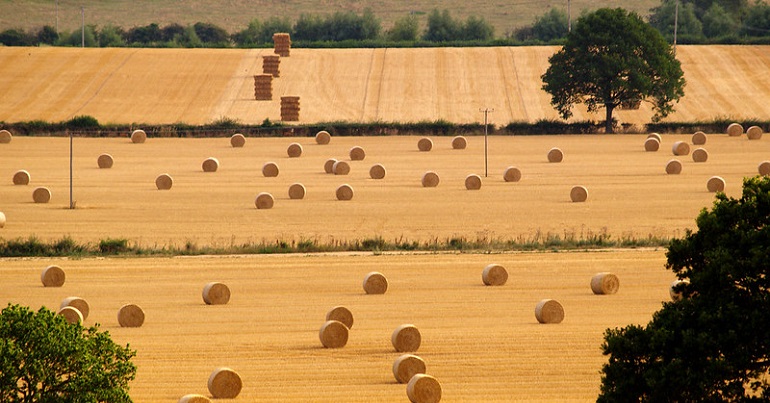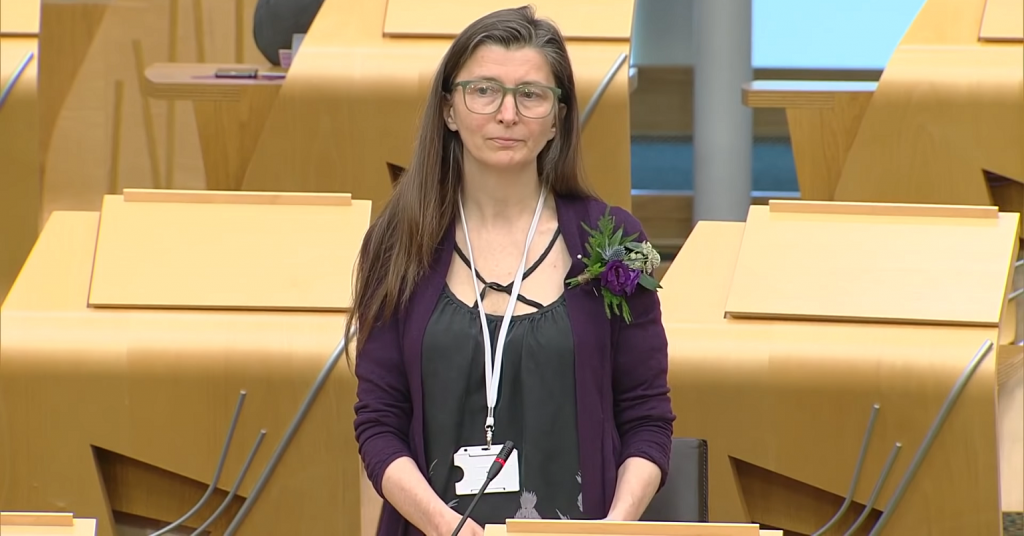We need a revolution in food and farming. Only the Greens are offering that.

That food, farming and land use have taken up almost no space in the mainstream general election debate in the United Kingdom is no great surprise. Traditionally they never have.
While farming uses 69% of the UK landmass, it employs only 2% of workers – hardly a major electoral block. Food manufacturing and production is much larger, around 12% of employment, but scattered around the country and with little organisation of that mass of workers, although the multinational, large-scale production sector has a large lobbying presence.
The largest parties have paid little attention to their policies in the area, having well-entrenched positions,
Traditionally Labour has been concerned with “cheap” food, the Conservatives with the income of large farmers and the food corporations.
There’s not a lot of difference this year, although Labour has a focus, rightly, on ending the demand for food banks, looking at the benefit sanctions, low wages and insecure employment driving their use. I’ve long been saying – since at least 2015 – that we should not rest until the last food bank closes due to lack of demand.
And there has been – driven by the new focus on the climate emergency – something of a bidding war on the subject of tree planting, although for the Tories it is pretty hard to be credible in the area, given their disastrous record in government.
What neither party has talked much about is the damage being done to our environment, and our health, by current farming and food policies.
Which is odd really, since 100% of voters have, or should have, a keen interest in food, and the impact of land use on greenhouse gas emissions, this being the climate election, putting in place a government that has to act if we’re to meet the limits set by the Intergovernmental Panel on Climate Change.
All voters eat, most people aspire to eat healthily, and all need a liveable planet. On both of those basics, they are being ill-served by the policies of today and the offerings of the larger parties..
At the moment England has a food strategy, if one that isn’t written down. (Scotland and Wales are far further advanced in this area.)
England’s strategy has been to let the supermarkets, the multinational manufacturers and fast food giants, the agrochemical companies, the factory farmers and the seed giants decide what we eat.
What they have given us is largely a highly processed, sugar-filled, plastic-wrapped, much-transported unhealthy diet.
The Green Party’s manifesto calls, however, for transformation, for strong support for agroecological farming, for farm jobs and small business opportunities built around the principle of local food sovereignty. And for an end to factory farming – the food waste that sees grains and protein that would be a good human diet fed instead to animals to produce a small amount of protein and fat.
We want to “put control over the resources to produce, distribute and access food in the hands of communities and workers across the food system”.
On a small and local scale there are many examples of this happening, with the Kindling Trust in Manchester, the food strategy in Lancaster, community-supported farms around the country, the campaigning of the Landworkers’ Alliance. But it needs to be happening right across England, and to be leaping in scale.
This is also a crucial model for the future of food security – in a world in which supplies are far from certain and the UK currently dangerously dependent on supplies from abroad.
By contrast, what’s planned for the future under current models is an increase in large-scale, industrial food production and dependence on imports, as highlighted by the release this week by Feedback of a report on the expansion plans of British sugar.
Its focus is primarily on the disastrous impact of sugar beet production on some of our most fertile soils (something I’ve written about before), but it also highlights how wrongly directed current plans are for a healthy, secure diet for the UK.
Nationally we consume 3,690 tonnes of sugar a day, 87% in processed foods. About 110,000 hectares of land is dedicated to that – about the same as we use to grow vegetables and fruit.
To be healthily self-sufficient in fruit and vegetables, we need to grow about eight times what we do now. Turning 50% more land to sugar is literally the last thing the national diet needs.
There’s generally agreement, however, that we need more tree planting. Only the Green Party really sets out where those trees go. A large chunk needs to go right on to farms. Agroforestry, the combination of trees and crops in a healthy symbiosis, which as I saw when I visited the wonderful Wakelyns increases productivity by about one third, creates a huge jump in biodiversity and can produce lots of varied fruits and nuts.
And one of the areas where we could see many more trees – storing carbon, contributing to biodiversity, enriching the possibilities for ecotourism – is on the uplands, where currently, particularly in northern England and Scotland, grouse moors dominate.
The Green Party has long been calling for a ban on driven grouse shooting, and yesterday the Revive coalition in Scotland published a new report explaining further reasons for that.
This is the kind of transformation, the rewilding, the natural carbon capture and storage, the restoration of conditions for wildlife in the UK, one of the most nature-depleted nations in the world, that we need to see, urgently.
Business-as-usual, in our farming and food policies, in our use of land, is not an option. Your vote tomorrow is crucial on these issues, and there’s only one party offering the change that’s needed, the Green Party.




Leave a Reply